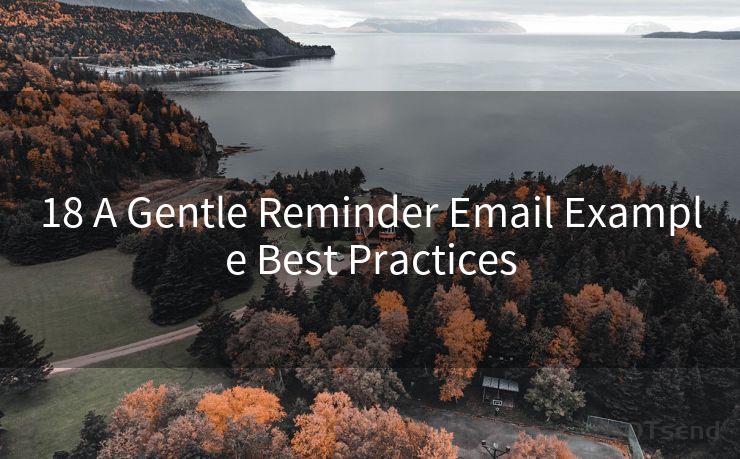18 A Gentle Reminder Email Example Best Practices




In the fast-paced world of business communication, the art of writing a gentle reminder email is an invaluable skill. Such emails are often necessary to nudge colleagues, clients, or partners without being too intrusive or aggressive. Here are 18 best practices to help you craft the perfect gentle reminder email.
1. Clear and Concise Subject Line
Start with a subject line that clearly communicates the purpose of your email. For example, “Gentle Reminder: Upcoming Meeting on XYZ Project.”
2. Personalized Greeting
Always use a personalized greeting, such as “Dear [Name],” to establish a friendly and professional tone.
3. Express Gratitude
Begin by thanking the recipient for their time and attention. This sets a positive tone for the rest of the email.
4. State the Purpose
Clearly and directly state the purpose of your email. For example, “I am writing to gently remind you about our upcoming meeting on the XYZ project.”
5. Provide Context
Give a brief overview of the situation or background information to help the recipient recall the details.
6. Use Polite Language
Maintain a polite and respectful tone throughout the email. Avoid sounding demanding or accusatory.
7. Include Specific Details
Provide specific dates, times, and locations if applicable. This helps the recipient understand the urgency and importance of the matter.
8. Offer Assistance
If possible, offer to help the recipient in any way you can. This shows that you are willing to go the extra mile to ensure things run smoothly.
9. Avoid Assumptions
Don’t assume the recipient knows all the details. Provide all necessary information in a clear and concise manner.
10. Call to Action
Include a clear call to action, such as “Please confirm your attendance by [date].”
11. Keep It Short
Long emails can be overwhelming. Stick to the point and keep your message brief.
12. Proofread
Always proofread your email before sending to avoid any misunderstandings or confusion.
13. Follow Up
If necessary, don’t hesitate to send a follow-up email after a reasonable period of time.
14. Use Templates Wisely
While templates can save time, make sure to customize them enough to maintain a personal touch.
15. Consider Time Zones
When scheduling meetings or events, be mindful of the recipient’s time zone.
16. Avoid Multiple Topics
Stick to one topic per email to keep things clear and focused.
17. Format for Readability
Use bullet points, headings, and paragraphs to enhance readability.
18. Test Your Email
Send a test email to yourself or a colleague to check for clarity, tone, and formatting before sending it to the intended recipient.

Crafting the perfect gentle reminder email requires a balance of politeness, clarity, and directness. By following these 18 best practices, you can ensure your message is received in the spirit it was intended. Remember, effective communication is key to maintaining professional relationships and achieving successful outcomes.
🔔🔔🔔
【AOTsend Email API】:AOTsend is a Managed Email Service for sending transactional emails. Support Email Types: reminders, authentication, confirmations, notifications, verification codes, invoices, password resets, account activations, billing statements, two-factor authentication (2FA), and one-time passwords (OTP) emails, etc. $0.28 per 1000 Emails. 99% Delivery, 98% Inbox Rate.
You might be interested in:
Why did we start the AOTsend project, Brand Story?
What is a Managed Email API, How it Works?
Best 25+ Email Marketing Platforms (Authority,Keywords&Traffic Comparison)
Best 24+ Email Marketing Service (Price, Pros&Cons Comparison)
Email APIs vs SMTP: How they Works, Any Difference?




Scan the QR code to access on your mobile device.
Copyright notice: This article is published by AotSend. Reproduction requires attribution.
Article Link:https://www.mailwot.com/p6266.html



